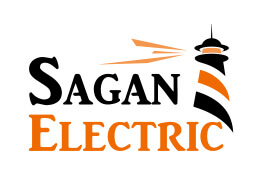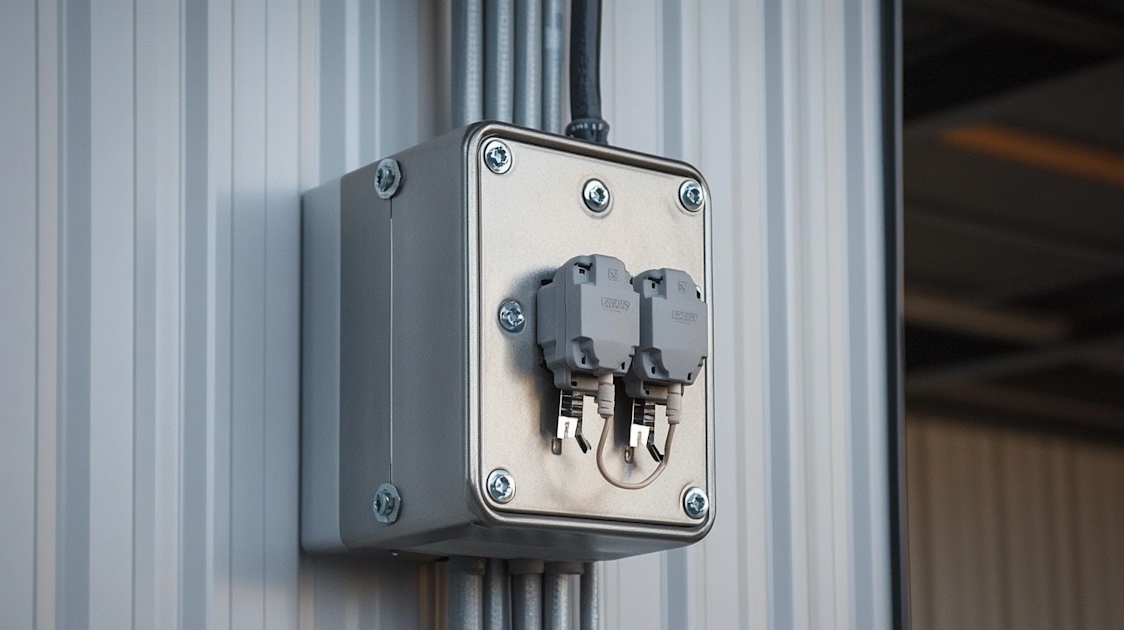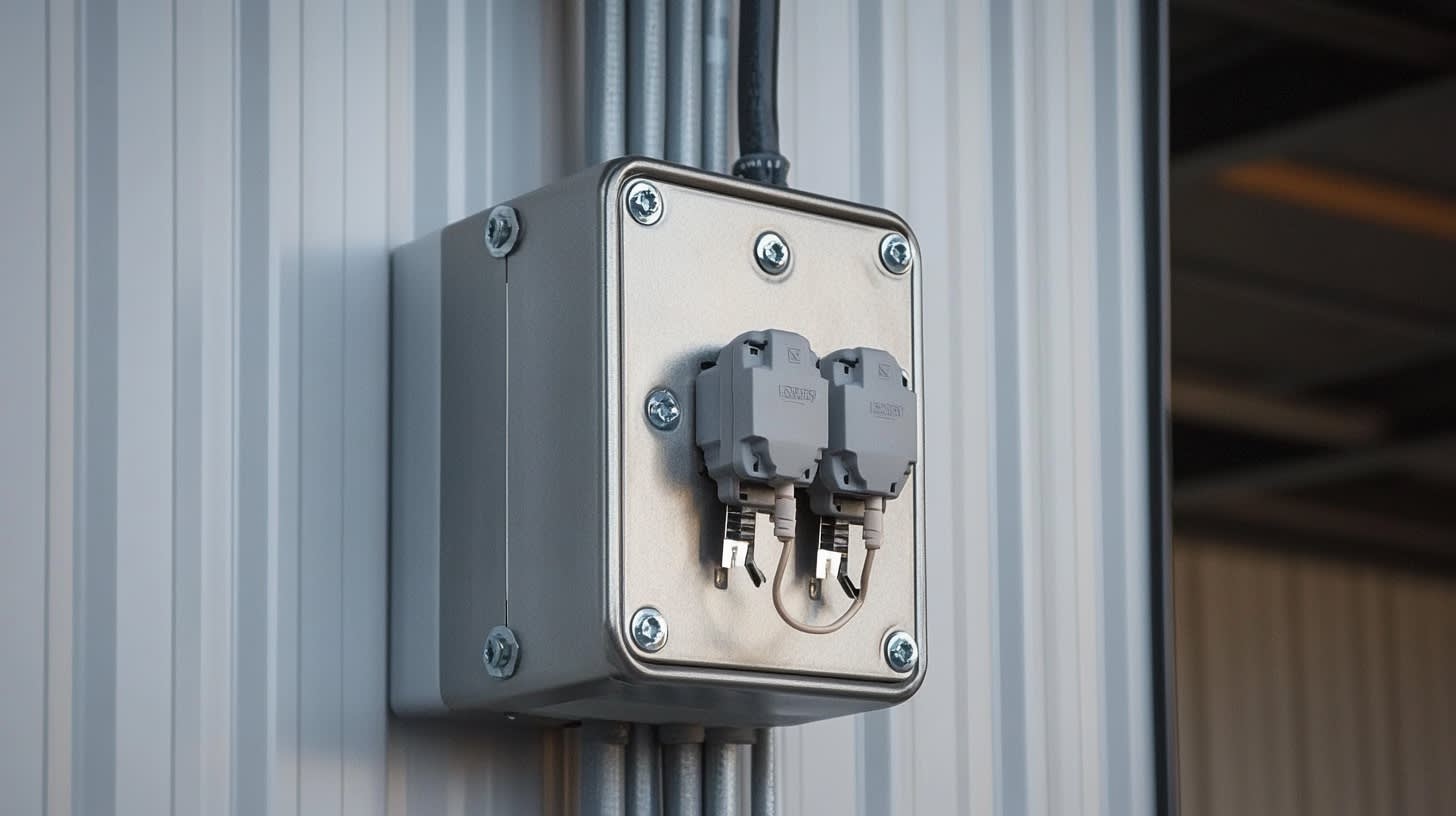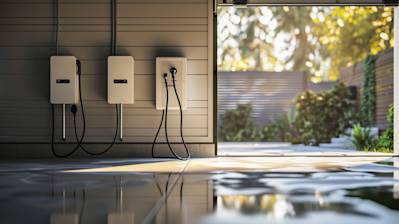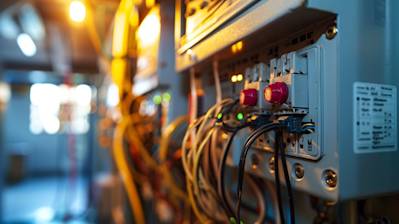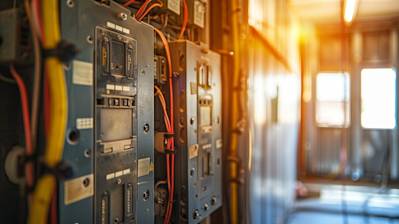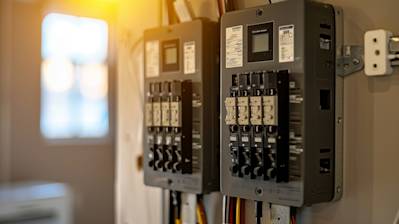Getting your electrical wiring right is not only essential for functionality; it's a safety issue too. The debate between using metal conduit and PVC (Polyvinic Chloride) conduit is an ongoing one, with both materials having their unique strengths. In this article, we'll delve into the intricate details of these conduit materials, using short SEO rich headings, helping you understand precisely when to use metal conduit and PVC.
Understanding the Role of Electrical Conduit
Before we begin the metal conduit vs. PVC discussion, let's comprehend the role of an electrical conduit. The electrical conduit materials serve a fundamental purpose: to protect your home and electrical wiring from damage. They encase electric wires, thus preventing electrical fires, maintaining your connections, and ensuring your safety.
The Tale of Metal Conduit: What It Offers
When delving into the dilemma of choosing between metal conduit and PVC, we must first understand what each offering. Metal conduit, often made of galvanized steel or aluminum, is known for its high durability and ability to withstand physical damage. This material is often seen in commercial establishments, garages, and industrial settings. It also acts as a ground conductor, leading to enhanced safety.
Key features of metal conduit include:
- High durability
- Protective grounding conduit
- Can withstand high temperature
- Suitable for exposed locations
PVC Conduit: An Alternative Worth Considering
PVC conduit, on the other hand, is a rigid yet lightweight plastic conduit option. It has become a popular choice for residential and light commercial applications due to its ease of use and installation. PVC is resistant to corrosion and does not require grounding. It's also economical, which favors many homeowners, and is excellent for underground or embedded concrete use.
The significant aspects of PVC Conduit include:
- Light in weight
- Simple to install
- Resistant to corrosion
- Cost-effective
When to Opt for Metal Conduit Over PVC
Now let's discuss the scenarios when metal conduit will be a more suitable option compared to PVC.
Scenario 1: High-Temperature Areas
Since PVC is a plastic material, it cannot withstand extreme temperatures as metal conduit can. For instance, if you're setting up wiring systems in areas exposed to high heat or direct sunlight, metal conduit would be the more suitable option.
Scenario 2: Exposed Wiring
If your electrical wiring is exposed, metal conduit is the better option. It is highly resistant to physical damage from impact, thereby ensuring the safety and longevity of your electrical system.
Scenario 3: Commercial and Industrial Use
Due to its significant strength and durability, a metal conduit is often the material of choice in commercial and industrial settings. It can withstand high levels of physical stress that may occur in such environments.
Instances Where PVC Trumps Metal Conduit
Having understood when metal conduit is the better option, we must also discuss the instances where PVC would be the right choice.
Scenario 1: Underground Wiring
PVC is a better option for underground and damp environments. It is highly resistant to rust and corrosion, thus ensuring your underground wiring remains unaffected by such elements.
Scenario 2: Lightweight Uses
As a lighter and more flexible material, PVC is the right choice when there's a need for lightweight use and ease of installation.
Scenario 3: Economical Applications
The cost-efficiency of PVC appeals to homeowners looking for a reasonably priced conduit solution. More elaborate installations like a whole house might therefore consider PVC for the electrical setup.
Frequently Asked Questions about When To Use Metal Conduit Vs Pvc
Are there specific industry standards that specify when to use Metal or PVC conduit?
Yes, there are specific industry standards such as those set by the National Electrical Code (NEC). As per NEC requirements, areas prone to physical damage should use a metal conduit for protection. Conversely, areas prone to corrosion should use PVC conduit. The crucial thing to remember is that every electrical project is unique and requires a thorough study before deciding.
When using outdoor wiring, should I use a Metal conduit or PVC conduit?
Outdoor and underground wiring often deal with extreme weather conditions and potential for physical damage. For these scenarios, PVC conduit is preferred because it is resistant to corrosion, waterproof, and will not conduct electricity. However, metal conduit may be used above ground for additional mechanical protection.
Is a Metal conduit better than a PVC conduit when it comes to fire resistance?
Metal conduits have a distinct advantage over PVC conduits in terms of fire resistance. Metal conduits possess a higher temperature resistance than PVC conduits and do not produce toxic smoke when subjected to extreme heat, making them more suitable for areas susceptible to high temperatures or fire hazards.
When considering cost-effectiveness, which is better: Metal conduit or PVC conduit?
In general, PVC conduit offers more cost-effectiveness than metal conduit. PVC conduit is typically inexpensive, lightweight, and easier to install than its metal counterpart – factors which significantly reduce labor costs. Though, it's essential to consider that durability and longevity might affect the long-term costs of your conduit option.
Is a Metal conduit more durable than a PVC conduit?
Metal conduits often surpass PVC conduits when it comes to durability. They are less prone to damage from impact and offer better protection from rodents, making them the preferred option for industrial settings or areas prone to physical damage.
Are there any health or safety concerns to consider when choosing between Metal and PVC conduit?
Both types of conduits have safety implications. Metal conduit can be hazardous in places prone to lightning strikes or electrical surges, given its electrical conductivity. PVC conduits, though not conductive, can release toxic hydrogen chloride gas when burned, posing a potential health risk in fire-prone areas.
Can I switch from using a Metal conduit system to a PVC conduit system?
Switching between conduit systems is typically possible but involves a thorough analysis of your existing system and requirements. Significant changes could involve adjusting hole sizes or spaces, ensuring the PVC system can withstand the environment, and adhering to local regulations. Therefore, it's advisable to consult with an electrical professional before making such a transition.
When and where is Metal conduit a “must” and PVC conduit a “no-no”?
Metal conduit is a must in commercial and industrial buildings, or areas prone to physical damage, where heavy-duty protection is necessary. It's also preferred in fire-risk areas due to its fire resistance. Conversely, PVC conduit is a no-no in areas with high temperatures as it can warp or release toxic gases when burned.
Pros of Using Metal Conduit
Durability
Resistance to Physical Damage
Metal conduits are made from materials like steel, galvanized steel, or aluminum, which are highly resistant to physical damage. This makes them ideal for use in construction sites, outdoors, and other areas where there's a risk of wear and tear.
Longer Lifespan
Due to their robust construction, metal electrical conduits generally have a longer lifespan than their PVC counterparts. They can last many decades if appropriately maintained.
Safety
Fire Resistance
Metal conduits are fire-resistant. They contain flames and act as a barrier between fire and the cables inside, reducing the risk of electrical fires. The texture of metal conduit also prevents the spread of fire along the conduit run.
Grounding
Metal conduits provide a natural ground for electrical systems, which can be a significant safety advantage. With an appropriately grounded metal conduit system, the risk of electrical shock is significantly reduced.
Recyclability
Metal conduits are fully recyclable, making them more eco-friendly compared to PVC. At the end of their lifecycle, they can be melted down and reused.
Cons of Using Metal Conduit
Installation
Difficulty
Metal conduits are difficult to install compared to PVC conduits. They require special tools for cutting, bending, and joining. This can significantly lengthen the time needed for installation and increase labor costs.
Weight
Compared to PVC, metal conduits are generally heavier, making them more challenging to handle and install especially for overhead applications.
Corrosion
Metal conduits, particularly those made of galvanized steel, can corrode over time. This is particularly likely in moist or harsh environments, such as marine areas or industrial sites with chemical exposure.
Pros of Using PVC Conduit
Installation
Ease of Use
One of the main advantages of PVC conduit is it's easier to cut, bend, and install compared to metal conduit. This can save a significant amount of labor and time during installation.
Lightweight
Due to their plastic nature, PVC conduits are lightweight, making them easier to handle than metal conduits, especially for overhead installations.
Cost
PVC conduits are generally less expensive than metal conduits in terms of both material and labor costs.
Corrosion Resistance
PVC conduits are not subject to corrosion, making them ideal for use in corrosive environments like marine locations, or industrial sites with heavy chemical exposure.
Cons of Using PVC Conduit
Durability
Susceptibility to Physical Damage
PVC conduits may not be able to withstand the same level of physical abuse as metal conduits. They are more susceptible to crushing, cracking, or shattering, especially in colder climates.
Fire Safety
Combustibility
Unlike metal conduits, PVC conduits are not fire-resistant. In a fire situation, they can melt or burn, potentially exposing the cables inside and contributing to toxic smoke.
Environmental Impact
PVC is a type of plastic that doesn't decompose naturally and is not as easily recyclable compared to metal. Therefore, PVC conduits pose a greater environmental impact than their metal counterparts.
Summary
In the end, the decision of "when to use metal conduit vs PVC" is all up to your specific needs and circumstances. If you have a project that requires rugged protection, especially in an outdoor or abrasive environment, then metal conduit is typically the better choice. But if you're working on a project where flexibility and ease of installation are more important, or in an area that is particularly damp or corrosive, PVC can be an ideal option. Rest assured, both materials have their own unique advantages that can make them the right choice under different circumstances.
Remember that a key point in deciding "when to use metal conduit vs PVC" is understanding the environmental and physical constraints of your specific project. Metal conduits, being more durable and resistant, are generally used in commercial establishments, while PVC conduits, known for being cheap, lightweight, and immune to rust, might be the better choice for residential or small-scale uses. So, it really comes down to what’s more important to you, durability or ease of use and cost-effectiveness?
All in all, your decision "when to use metal conduit vs PVC" should boil down to the specific demands of your application. Both materials have their pros and cons, so take ample time to gauge your project’s unique requirements and constraints before making a decision. Don't rush your choice - after all, a well-thought-out decision can save you time, money, and potential headaches down the line.
About Sagan Electric
Sagan Electric, based in lovely Sacramento, CA, is here to power up your world. While we are a professional electrical service company, don't imagine a bunch of stuffy technicians. Nah, we are as lively as an electric current and passionate about keeping your lights on and machines running. With a team of super-skilled and friendly electricians, we handle each project - big or small - with the same dedication and fun-loving spirit. Our years of experience serving the Sacramento community have been electrifyingly amazing, and we're excited for many more. So, if you're in Sacramento and dealing with electrical issues, buzz us. You could say, we're the bee's knees in town for all things electrical.
Tags: metal conduit, pvc conduit, electrical wiring,
